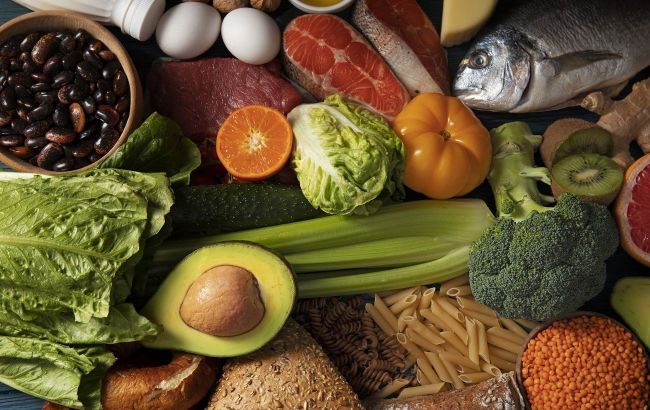Feeling stressed? These everyday Ukrainian foods can help you feel calm and happy
 What all Ukrainians should eat (photo: freepik)
What all Ukrainians should eat (photo: freepik)
Unfortunately, constant stress has become part of daily life for many Ukrainians. Therefore, caring for physical health and actively supporting the nervous system and mental well-being is essential. What food can help Ukrainians cope with stress and boost their mood?
How does nutrition affect our mood and stress levels?
Like any other organ, our brain requires nutrients to function properly. Certain vitamins and minerals are critical for producing neurotransmitters, the chemical messengers responsible for our mood, sleep, and stress response.
For example, serotonin—the "happiness hormone"—is synthesized in the gut, and its production directly depends on the gut microbiota and the presence of specific amino acids. Poor nutrition can increase inflammation, cause blood sugar spikes and drops, and lead to mood swings, anxiety, and cognitive decline.
What should Ukrainians include in their diet?
Foods rich in Omega-3 fatty acids, such as oily fish (sardines, mackerel, herring — more affordable than expensive varieties but just as rich in Omega-3s), flax seeds, and walnuts, are essential building blocks for brain cells and have potent anti-inflammatory effects.
These help regulate neurotransmitters like dopamine and serotonin, positively impacting mood and brain function. Research shows Omega-3s can reduce anxiety and symptoms of depression. Add flax seeds to meals or snack on walnuts.
Whole grains such as buckwheat, oats, pearl barley, brown rice, and whole-grain bread are sources of complex carbohydrates. These provide a slow, steady release of glucose into the bloodstream, helping avoid sugar spikes that can lead to irritability, fatigue, and anxiety.
They also contain B vitamins, crucial for a healthy nervous system and neurotransmitter production.
Leafy greens and green vegetables like spinach, broccoli, and cabbage are rich in magnesium, a mineral whose deficiency is often linked to stress, anxiety, and sleep disorders.
Magnesium helps relax muscles and the nervous system. These vegetables are also high in folate (vitamin B9), which is involved in neurotransmitter synthesis. Add fresh spinach to salads and smoothies, steam broccoli, and include different types of cabbage in your daily meals.
Fermented foods such as sauerkraut, kefir, and plain unsweetened yogurt are vital for gut health, where up to 70% of serotonin is produced.
A healthy gut microbiome directly affects mood and immunity. These foods are rich in probiotics that help maintain a balanced gut flora.
Dark chocolate with a high cocoa content (at least 70–80%) contains tryptophan, an amino acid that is a serotonin precursor.
It also contains magnesium and antioxidants that help reduce cortisol levels and improve mood. Consume it in moderation — a few squares a day are enough.
Eggs are a source of high-quality protein, choline (important for brain function), vitamin D, and B vitamins, including B12. These nutrients are essential for the nervous system and energy production, helping combat fatigue and apathy.
Eggs are affordable and nutrient-dense. Enjoy them boiled, fried, or as omelets.
Berries, especially blueberries, raspberries, and strawberries, are rich in anthocyanins and other antioxidants that protect brain cells from oxidative stress and inflammation.
They may also influence dopamine production, enhancing mood and mental function. Eat them fresh or frozen — both forms retain most of their health benefits — as snacks or add them to porridge, yogurt, or smoothies.
Sources: Eat This, Not That; Nutrients; Health
This material is for informational purposes only and should not be used for medical diagnosis or self-treatment. Our goal is to provide readers with accurate information about symptoms, causes, and methods of detecting diseases. RBС-Ukraine is not responsible for any diagnoses that readers may make based on materials from the resource. We do not recommend self-treatment and advise consulting a doctor in case of any health concerns.

